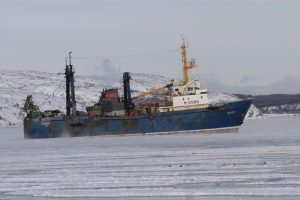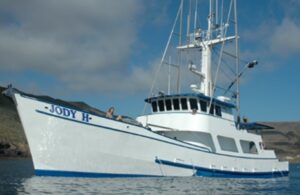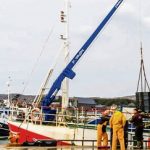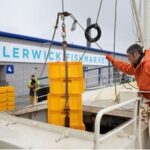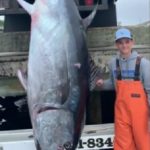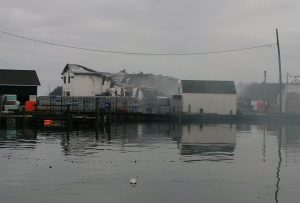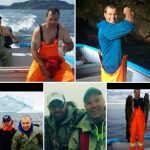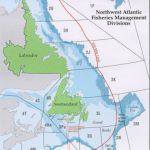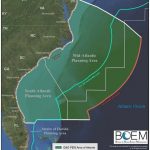Tag Archives: Transportation Safety Board
Lack of firefighting skills cited in sinking of Nova Scotia trawler that caught fire
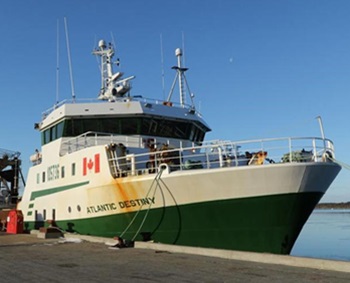 The Transportation Safety Board says the 2021 sinking of a large fishing boat that caught fire off the south coast of Nova Scotia raises broad concerns about the lack of firefighting knowledge among crews in general. The independent agency released an investigation report Wednesday about the demise of the FV Atlantic Destiny, which had 31 crew members aboard when it was rocked by a catastrophic engine failure that sparked an explosion and fire on March 2, 2021. No one was injured by the blast and all crew members were safely evacuated from the 43-metre scallop trawler during a harrowing rescue operation in heaving seas about 200 kilometres south of Yarmouth. more, >>click to read<< 16:38
The Transportation Safety Board says the 2021 sinking of a large fishing boat that caught fire off the south coast of Nova Scotia raises broad concerns about the lack of firefighting knowledge among crews in general. The independent agency released an investigation report Wednesday about the demise of the FV Atlantic Destiny, which had 31 crew members aboard when it was rocked by a catastrophic engine failure that sparked an explosion and fire on March 2, 2021. No one was injured by the blast and all crew members were safely evacuated from the 43-metre scallop trawler during a harrowing rescue operation in heaving seas about 200 kilometres south of Yarmouth. more, >>click to read<< 16:38
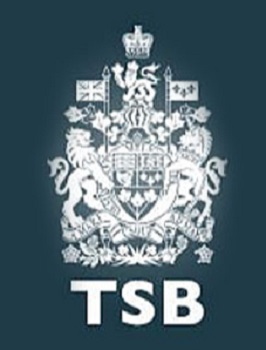
Amid fishing deaths, calls rise for small boats to have stability checks
After the Caledonian capsized off Vancouver Island in 2015 with three lives lost, the Transportation Safety Board called for all small fishing vessels to undergo a stability assessment and adhere to standards ensuring stability information “is adequate and readily available to the crew.” However, seven years later, Transport Canada says on its website that enacting the regulation would be “functionally challenging and prohibitively expensive for the industry.” The department declined a request for an interview with a senior official to provide further explanation. It’s a stance the Transportation Safety Board describes on its website as “unsatisfactory,” while a lawyer for the mother of a deckhand who died when the scallop dragger Chief William Saulis flipped over off Nova Scotia on Dec. 15, 2020 argues the federal government needs to act. >click to read< 11:50 – Search Results for “Caledonian” – fisherynation.com – Search Results for “Chief William Saulis” – fisherynation.com
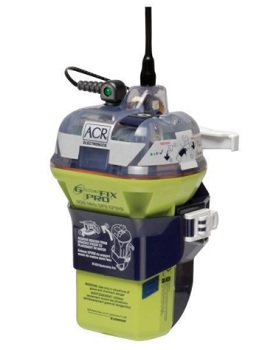
EPIRBs: Emergency radio beacons coming for small fishing vessels in southern Labrador
The Labrador Fishermen’s Union Shrimp Company is outfitting dozens of vessels between Cartwright and L’Anse au Clair that are under 40 feet and harvesting for them. The move comes less than a year after two fishermen died near Mary’s Harbour and shortly following a Transportation Safety Board report into the loss of the FV Sarah Anne in Placentia Bay. The devices transmit signals to a satellite, which alerts search and rescue services in case of an emergency at sea and allows them to pinpoint the beacon’s location. Linstead said the company’s board brought the idea forward after the fishermen were concerned about recent accidents. > click to read < 13:48
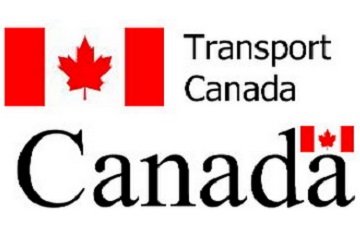
SEA-NL calls for public inquiry into fishing vessel safety, search and rescue
Seaward Enterprises Association of Newfoundland and Labrador is calling for a joint, federal/provincial commission of inquiry into fishing vessel safety, and search and rescue response in this province to investigate why incidents and deaths at sea are on the rise. “There is no greater indictment of serious, systemic problems with fishing vessel safety and search and rescue than the rise in mariner deaths,” says Ryan Cleary, SEA-NL’s Executive Director. “Fishing is already one of the most dangerous occupations in the world without lax government oversight increasing those risks.” > click to read < 13:30
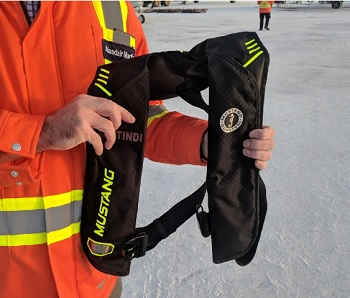
Canada: Fishing Industry’s high death rate ‘unacceptable’ and ‘preventable’
Though there is no obvious reason as to why fishing in Canada is so dangerous, or more dangerous than in other countries, there are certainly a number of factors at play. One of the reasons could simply be due to the large numbers of fish harvesters in Canada. Nova Scotia and Newfoundland have the greatest population of fish harvesters (according to 2009 numbers, Newfoundland and Labrador has around 17,000 fish harvesters and 6000 vessels, while Nova Scotia has around 13,000 fish harvesters and around 4,500 vessels). With so many people in the industry, a higher number of fatalities could be inevitable. >click to read< 10:26
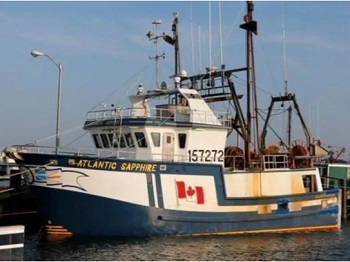
N.S. fishing vessel overloaded with fish, fuel, ice and freshwater at time of sinking
In its investigation report released Wednesday, the board said the Atlantic Sapphire should have been carrying no more than 41 long tons of cargo. When it sank around 11 p.m. on Dec. 13, 2018, the trawler was loaded with over 60 long tons, putting it about 46 per cent over capacity. “On the occurrence voyage, the crew caught a full load of fish in less time than on any other trip that year, so there was more fuel, freshwater, and ice on board than usual,” the report said. “The crew did not appreciate the risk to the vessel’s stability created by this excess weight,,, >click to read< 19:33
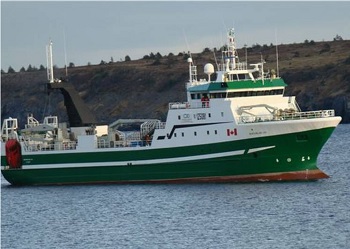
Transportation Safety Board: Factory freezer trawler fire met with uncoordinated response
A fire on board OCI’s factory-freezer trawler Newfoundland Lynx in January started in the vessel’s sauna and, while the fire was contained, it was met with an uncoordinated response by the crew due to a lack of fire drills that involved “realistic scenarios,” states a Transportation Safety Board (TSB) report released this week. The report also notes that some of the firefighting equipment on board was in a deteriorated condition and that there wasn’t enough of some key parts of the firefighting equipment. It advised in the report that, “It is important that crews perform fire drills on a regular basis to confirm that firefighting equipment is in working order, and to reinforce their knowledge of how to use the equipment and of assigned emergency duties. It is also important that these drills include varied and realistic scenarios so that crews are prepared to respond effectively to emergencies.” >click to read< 08:21
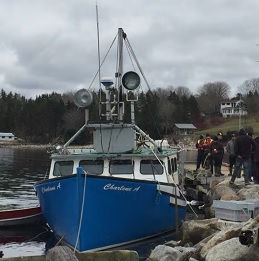
Nova Scotia lobster boat that sank was modified with tailgate
The Transportation Safety Board says an investigation into the December 2018 sinking of a lobster boat off Boutiliers Cove, N.S., found the vessel had been modified but did not receive a required stability assessment. The board says the Charlene A, a 10 metre longliner with 150 lobster traps aboard, sank in St. Margarets Bay when water started pouring onto the deck through an open tailgate at the rear of the vessel. >click to read< 19:28
December 1, 2018 –Crew safe after boat sinks on 1st day of lobster fishing season – The Charlene A. began taking on water about 1.5 kilometres off Hacketts Cove, N.S., shortly after leaving the wharf at 7 a.m. The crew turned around and started heading back to port, but the vessel sank 300 to 400 metres offshore. >click to read<
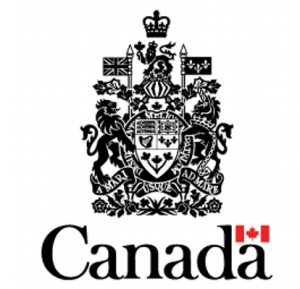
Fatal Port Hood fishing accident probe slowed due to backlog
The Transportation Safety Board says it’s dealing with a large number of marine incidents in Atlantic Canada and that’s slowing down the investigation process. For example, an investigation is still ongoing into a fishing accident that caused two deaths near Port Hood, N.S., more than a year ago. Hugh Watts and Glen MacDonald died after the Ocean Star II capsized about 100 metres offshore in May 2018. The TSB launched what’s known as a Class 4 investigation, which the agency said is a kind of probe that is limited in scope and usually completed within 200 days. It’s been more than 400 days since the investigation started. >click to read< 08:46
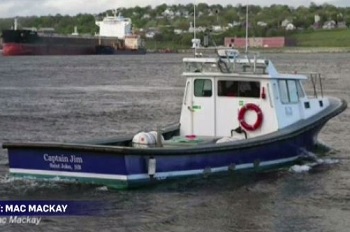
Boat that sank off Eastern Passage raised as part of investigation
In a community where many make a living on the sea, the loss of a boat — and a life — means watching and waiting. On Thursday, people in Eastern Passage, N.S., watched as crews worked to recover the MV Captain Jim, which sank off Devil’s Island, near the mouth of Halifax Harbour on Jan. 29. The MV Captain Jim sank around 2 a.m. after the commercial boat began taking on water and lost power. After a massive search effort, two people were rescued from the icy water, but one crewman was missing. ?click to read<16:56
Please donate to the Max Hinch Memorial Fund – >click here<
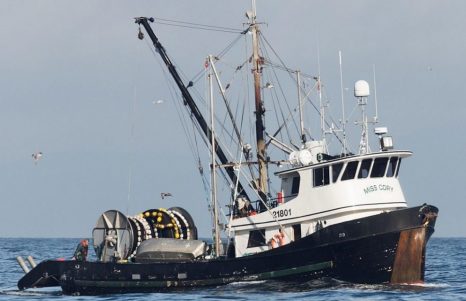
Investigation results released after fatal herring boat sinking
The chain of events that led to a fishing boat sinking off Cape Lazo have been released. Back on March 6, 2017, the Miss Cory had been fishing for herring in the Strait of Georgia after sailing out of Comox for the fishery opening that day. The fishing boat was 19.5 metres in length, and based out of Prince Rupert. It had sent out a distress call around 4:30 p.m. in the afternoon, at a location around five and a half kilometres out from Cape Lazo. At the time of the sinking, four crew members were rescued by a nearby vessel, the Proud Venture. One person was unaccounted for and declared missing. >click to read<08:41
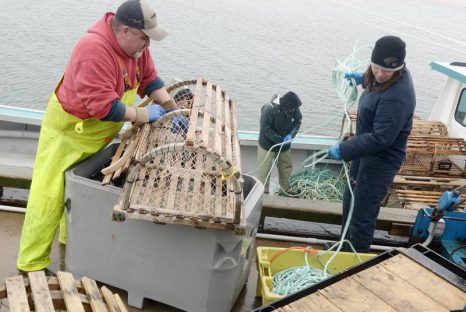
Canada’s most dangerous job
Last week’s tragic accident in the waters of Northumberland Strait, off Cape Bear, in Eastern Prince Edward Island, was a reminder of the little acknowledged fact that fishing is the most dangerous occupation in Canada. Two men were killed when a Cape Island fishing boat travelling under full power slammed into a similar boat that was stopped in the water. The Transportation Safety Board and other agencies are investigating the accident and are yet to rule on exactly what happened. Last October, after a month-long study, Toronto’s Globe and Mail newspaper did an extensive series on workplace fatalities, and it concluded that fishing is Canada’s deadliest occupation. >click to read<11:51
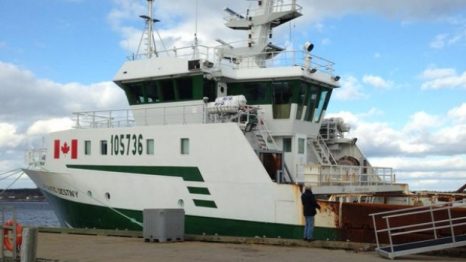
Catastrophic engine failure on scallop trawler due to broken equipment, human error, says TSB
A combination of maintenance gaps, a broken emergency stop mechanism and the actions of an inexperienced crew member were to blame for the catastrophic engine failure aboard scallop dragger Atlantic Destiny last year, a Transportation Safety Board investigation has found. On March 14, Atlantic Destiny lost main engine power about 370 kilometres south of Yarmmouth, N.S. Thirty-one people were on board the factory freezer trawler, which is based in Riverport, N.S. Atlantic Destiny is part of the fleet owned by Ocean Choice International of Newfoundland and Labrador. >click to read< 13:02
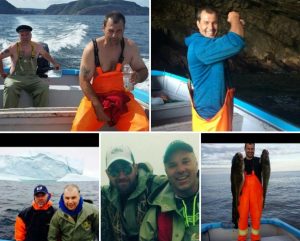
DFO reviewing cod quota policy after report says it may encourage dangerous fishing
Fisheries and Oceans Canada said it will be taking a long, hard look at its regulations after a report said a few of the department’s policies could be putting pressure on harvesters to fish in dangerous conditions. The report was issued in late November by the Transportation Safety Board after an investigation into the death of four fishermen from Shea Heights whose boat went down in the waters off Cape Spear. click here to read the story 11:32
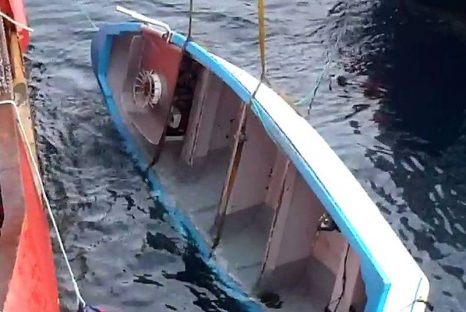
Report released about Shea Heights fishermen’s tragedy
The Transportation Safety Board (TSB) released its report Monday about the sinking of the 22-foot open boat Pop’s Pride and the loss of four Shea Heights fishermen in September 2016. The findings have confirmed what many in the tight-knit St. John’s community have believed since the accident — the fishermen went out that morning in questionable weather conditions; the way the cod stewardship fishery was set up caused fishermen to take risks in order to land their weekly quotas; and small fishing vessels do not have sufficient communication and safety equipment onboard. The four Shea Heights fishermen, including three generations of the Walsh family — Eugene, Keith and Keith Jr. — and close friend Billy Humby, were lost after their boat overturned off the coast of Cape Spear. click here to read the story 20:16
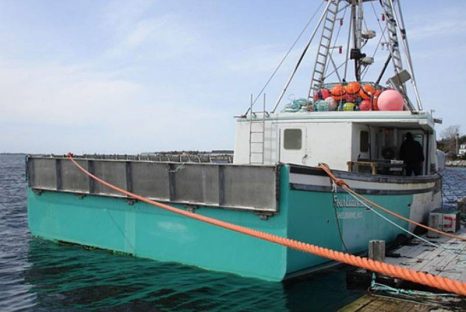
Lives on the line when fishermen head out to sea
It’s an old song. But it seems we have to keep singing it until something changes. Two weeks ago, The Globe and Mail ran a feature story on the fishing industry, pointing out, as others have for years, that the industry is one of the most dangerous in Canada. The newspaper mined statistical data to show just how dangerous the profession is: out of all professions in Canada, three different fishing occupations were in the top 10 of Canada’s most dangerous. Fishing vessel deckhand was the second-most dangerous occupation in the country. Fishing vessel skippers and fishers came in at fifth place, and aquaculture and marine harvest labourers ranked sixth. click here to read the story 09:06
Fishermen’s group pushes wearing Personal Flotation Devices
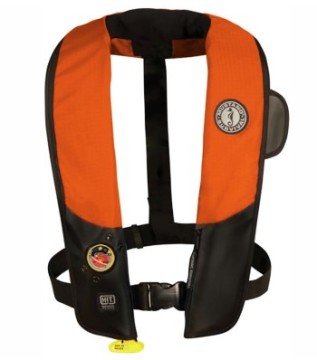 The Grand Manan Fishermen’s Association says the use of personal flotation devices in the commercial fishing industry is growing, but more work needs to be done. Melanie Sonnenberg, the association’s program manager, said she wasn’t surprised by the Transportation Safety Board’s latest push for mandatory use of personal flotation devices in the industry, a popular topic for years. “There’s been a great push with working with suppliers to develop products that are much more commercial fishing friendly,” she said. “We’ve seen a culture shift here in the industry. click here to read the story 12:34
The Grand Manan Fishermen’s Association says the use of personal flotation devices in the commercial fishing industry is growing, but more work needs to be done. Melanie Sonnenberg, the association’s program manager, said she wasn’t surprised by the Transportation Safety Board’s latest push for mandatory use of personal flotation devices in the industry, a popular topic for years. “There’s been a great push with working with suppliers to develop products that are much more commercial fishing friendly,” she said. “We’ve seen a culture shift here in the industry. click here to read the story 12:34

Engine failure on big scallop trawler investigated by TSB
Canada’s Transportation Safety Board expects to complete its preliminary investigation by Tuesday into an engine failure last week on board the scallop dragger Atlantic Destiny. The TSB dispatched two investigators from Quebec and two from its Ottawa laboratory to Shelburne, N.S., where the 43-metre long vessel was towed after a mechanical failure caused the ship to lose power. According to a timeline provided by Transport Canada spokesperson Stephen Bornais, the Atlantic Destiny lost main engine power 200 kilometres south of Yarmouth on the night of March 14. Clearwater scallop trawler Atlantic Preserver came to her aid and began towing her to Shelburne harbour the next day. Investigators boarded the vessel on March 18, examined the engine room and interviewed crew and witnesses, TSB said Monday. continue reading the story here 18:12
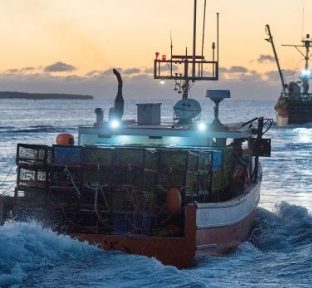
The hidden danger of Dumping Day in Nova Scotia
On Dumping Day, the hundreds of fishing boats that hit the water at the start of lobster season to set their traps can act as camouflage for a vessel in distress and hinder search and rescue efforts. In 2015, that camouflage led search and rescue technicians to jump out of a plane and miss a boat that needed their help, according to the Transportation Safety Board (TSB). Back on Nov. 30, 2015, the Royal Canadian Air Force’s Joint Rescue Coordination Centre dispatched a Hercules plane and Cormorant helicopter after two boats ran into trouble off Nova Scotia’s southwestern shore. The Cormorant and its crew managed to rescue two men who had fallen overboard from one vessel. In his report, Morrow determined that if rescue crews can’t accurately identify a vessel in distress from above, critical search and rescue operations may be delayed. Read the story here 09:08
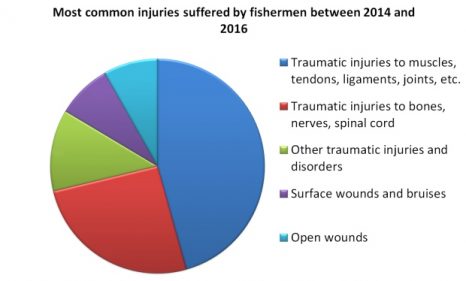
Nova Scotia’s deadliest industry slowly becomes safer
It is one of the most mundane tasks on a fishing boat: tying up the bumper balloons that prevent the vessel from crunching into the wharf when it docks. But for fisherman Mitch MacDonald it proved life-altering. For 10 years he fastened them with little problem. That is until last May, when his boat pitched unexpectedly and a balloon fell overboard, the rope sawing through his left index finger. “It pretty much burnt right through my finger and took the end of my finger off overboard,” he said. MacDonald has not regained the full use of his hand. The injury cost him thousands of dollars in lost income as he had trouble holding onto things and couldn’t work the rest of the fishing season. He is not alone. In 2016 there were 224 injuries on fishing boats, according to the Workers’ Compensation Board of Nova Scotia, but good news is the numbers are declining. Six years ago 351 injuries were reported. Read the story here 08:37
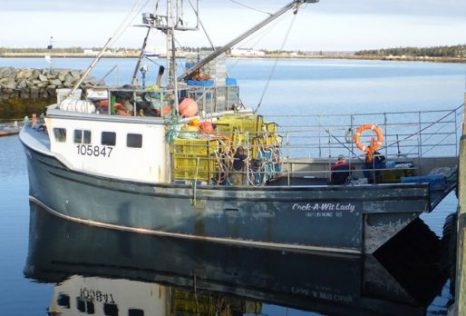
TSB Canada urges Fishermen to run safety drills in wake of tragic death investigation – New rules coming
The Transportation Safety Board of Canada says the crew on board a Nova Scotia fishing boat could have done more to prepare for potential emergencies, and that lack of planning may have played a role in the death of one of their own. Keith Stubbert, a 53-year-old man fisherman from Cape Breton, was dragged overboard from the Cock-a-Wit Lady and died during the first day of lobster season in southwestern Nova Scotia on Nov. 30, 2015. In a report released Thursday, the safety board said the crew of the ship hadn’t ever conducted safety drills and didn’t have a system for on-board risk management, such as meetings to identify safety risks. Transport Canada’s new fishing vessel safety regulations will come into force July 13, 2017. Under these rules small fishing boats will be required to have written safety procedures and familiarize all people on board with those procedures. The regulations also require safety drills be performed, including how to rescue someone who falls overboard. Records are to be kept of every drill, said the Transportation Safety Board. Read the story here 14:10
Transportation Safety Board wants life-vests mandatory for commercial fishermen
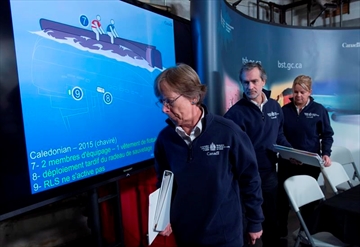 The federal government should look at the success of seatbelt laws when it considers a recommendation that would require commercial fishermen to wear a life-jacket at all times while on deck, the head of the Transportation Safety Board says. The recommendation to make life-jackets mandatory was part of a report released Wednesday into the deadly capsizing of a 30-metre fishing trawler last year off the west coast of Vancouver Island. “There was a time when it was OK to drive a car and not wear a seatbelt,” Kathy Fox said following a news conference in suburban Vancouver. Three men died and one survived when the Caledonian turned over and sank shortly after it loaded what was to be its final haul of hake on Sept. 5, 2015. The person who survived was also the only one wearing a personal flotation device. Read the story here 12:15
The federal government should look at the success of seatbelt laws when it considers a recommendation that would require commercial fishermen to wear a life-jacket at all times while on deck, the head of the Transportation Safety Board says. The recommendation to make life-jackets mandatory was part of a report released Wednesday into the deadly capsizing of a 30-metre fishing trawler last year off the west coast of Vancouver Island. “There was a time when it was OK to drive a car and not wear a seatbelt,” Kathy Fox said following a news conference in suburban Vancouver. Three men died and one survived when the Caledonian turned over and sank shortly after it loaded what was to be its final haul of hake on Sept. 5, 2015. The person who survived was also the only one wearing a personal flotation device. Read the story here 12:15
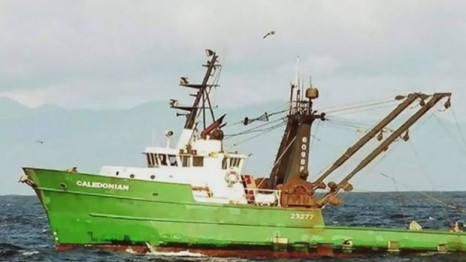
Transportation Safety Board report on B.C. fishing boat capsizing that killed three to be released
Investigators with the Board are scheduled to release a report today about a commercial fishing boat that capsized last year near Tofino, B.C., killing three men. The Joint Rescue Co-ordination Centre has said the Caledonian’s crew was trying to haul in a net on Sept. 5, 2015, when the boat listed. It capsized and sank about 55 kilometres west of Estevan Point off Vancouver Island. A fourth man was rescued from a life-raft hours later. The BC Coroners Service identified Wesley Hagglund, Keith Standing and Doug White as the men who died in the accident. Link 09:55
TSB says more needs to be done to ensure safety of commercial fishermen – Maritime Fishermen’s Union responds
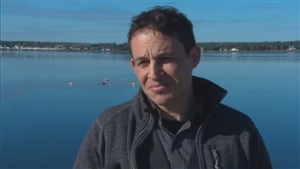 The Maritime Fishermen’s Union is responding to criticism from the Transportation Safety Board that there are still too many fatal fishing accidents every year in Canada. The union says it’s doing its part to try and make the fishing industry safer but points out fishing is a dangerous job and unfortunate things happen. “The reality of this industry is there are many factors that are uncontrollable and unpredictable. That is something we sometimes forget,” said Christian Brun, MFU’s executive secretary. Brun was responding to the recent release of the Transportation Safety Board’s Watchlist 2016 and in particular, the portion on commercial fishing safety that calls for stakeholders, industry and government to act on longstanding recommendations. Read the story here 08:10
The Maritime Fishermen’s Union is responding to criticism from the Transportation Safety Board that there are still too many fatal fishing accidents every year in Canada. The union says it’s doing its part to try and make the fishing industry safer but points out fishing is a dangerous job and unfortunate things happen. “The reality of this industry is there are many factors that are uncontrollable and unpredictable. That is something we sometimes forget,” said Christian Brun, MFU’s executive secretary. Brun was responding to the recent release of the Transportation Safety Board’s Watchlist 2016 and in particular, the portion on commercial fishing safety that calls for stakeholders, industry and government to act on longstanding recommendations. Read the story here 08:10
Transportation Safety Board: Culture shift needed to make Canadian fishing industry less deadly
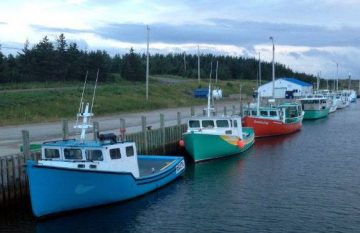 The fishing industry has cost more than 30 Canadian lives since 2000 and must improve its culture of safety, the Transportation Safety Board said as it released a report into a Newfoundland accident that left three people dead. The board said the tragedy near Placentia Bay last year demonstrates the need for increased regulations around fishing safety and a change of attitudes among fishermen. “The number of accidents involving loss of life on fishing vessels remains too high,” the report said, adding there were 31 deaths involving commercial fishing vessels between 2000 and 2015. “Concerted and co-ordinated action is required by federal and provincial authorities and by leaders in the fishing community to improve the safety culture in fishing operations.” Read the rest here 13:32
The fishing industry has cost more than 30 Canadian lives since 2000 and must improve its culture of safety, the Transportation Safety Board said as it released a report into a Newfoundland accident that left three people dead. The board said the tragedy near Placentia Bay last year demonstrates the need for increased regulations around fishing safety and a change of attitudes among fishermen. “The number of accidents involving loss of life on fishing vessels remains too high,” the report said, adding there were 31 deaths involving commercial fishing vessels between 2000 and 2015. “Concerted and co-ordinated action is required by federal and provincial authorities and by leaders in the fishing community to improve the safety culture in fishing operations.” Read the rest here 13:32
Transportation Safety Board releases findings on Placentia Bay crab fishing deaths
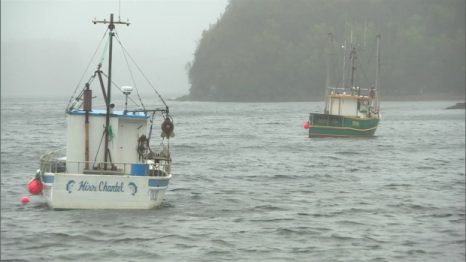 The Transportation Safety Board says a modified boat, poor communications and the failure to wear life jackets all likely contributed to a boating accident in Placentia Bay last year where three men died while fishing crab. Their bodies were found in June 2015, after it was believed their boat capsized in strong winds. None of the men were wearing life jackets. As there were no witnesses or survivors, the TSB said it can’t say with certainty what happened, but pointed to key risk factors. Notably, the board said the boat owner hadn’t been using his regular crab-fishing vessel — he was using a smaller, 7.1-metre open boat he “hastily” modified for the job. The report said he was under pressure to fish, as he hadn’t caught any of his quota two weeks before the end of the fishing season. His main boat was being repaired and taking longer than expected; he couldn’t use the vessel licensed to his wife as it could only be used to fish her quota, the report said. Read the rest here 15:06
The Transportation Safety Board says a modified boat, poor communications and the failure to wear life jackets all likely contributed to a boating accident in Placentia Bay last year where three men died while fishing crab. Their bodies were found in June 2015, after it was believed their boat capsized in strong winds. None of the men were wearing life jackets. As there were no witnesses or survivors, the TSB said it can’t say with certainty what happened, but pointed to key risk factors. Notably, the board said the boat owner hadn’t been using his regular crab-fishing vessel — he was using a smaller, 7.1-metre open boat he “hastily” modified for the job. The report said he was under pressure to fish, as he hadn’t caught any of his quota two weeks before the end of the fishing season. His main boat was being repaired and taking longer than expected; he couldn’t use the vessel licensed to his wife as it could only be used to fish her quota, the report said. Read the rest here 15:06
Transportation Safety Board investigating sinking of fishing boat off Yarmouth
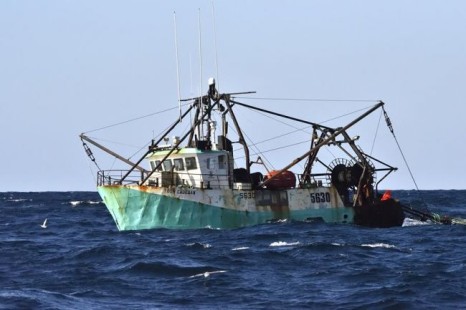 The Transportation Safety Board (TSB) is investigating the Feb. 15 sinking of the fishing vessel that occurred off Yarmouth. The TSB is sending a team of investigators to Pubnico, Yarmouth County, which was the home port of the fish dragger Don Cadegan. According to the TSB, the Don Cadegan ran aground and subsequently on Monday. The TSB said the three-person crew was picked up by another fishing vessel. When contacted by the Vanguard, the owner of the Don Cadegan said he did not know a lot of details, but said everyone on board the vessel at the time of the incident had been safely picked up by another vessel. Read the rest here 13:05
The Transportation Safety Board (TSB) is investigating the Feb. 15 sinking of the fishing vessel that occurred off Yarmouth. The TSB is sending a team of investigators to Pubnico, Yarmouth County, which was the home port of the fish dragger Don Cadegan. According to the TSB, the Don Cadegan ran aground and subsequently on Monday. The TSB said the three-person crew was picked up by another fishing vessel. When contacted by the Vanguard, the owner of the Don Cadegan said he did not know a lot of details, but said everyone on board the vessel at the time of the incident had been safely picked up by another vessel. Read the rest here 13:05
Deadliest year for B.C. fishermen in a decade
 This has become the deadliest year for B.C. fishermen in a decade, following the capsizing of a commercial fishing boat north of Tofino on the weekend, says the Transportation Safety Board. Three crew members died when the Caledonian, owned by Pacific Seafood, capsized Saturday night, at about 8 pm. PT, off Estevan Point on the west coast of Vancouver Island. That brings the number of deaths in B.C. fishing to six for 2015, said Glenn Budden, a senior marine investigator with the Transportation Safety Board. “It’s not been a good year for B.C. fishermen,” Read the rest here 21:45
This has become the deadliest year for B.C. fishermen in a decade, following the capsizing of a commercial fishing boat north of Tofino on the weekend, says the Transportation Safety Board. Three crew members died when the Caledonian, owned by Pacific Seafood, capsized Saturday night, at about 8 pm. PT, off Estevan Point on the west coast of Vancouver Island. That brings the number of deaths in B.C. fishing to six for 2015, said Glenn Budden, a senior marine investigator with the Transportation Safety Board. “It’s not been a good year for B.C. fishermen,” Read the rest here 21:45
Ship safety systems still voluntary, despite TSB pleas
 A federal initiative to improve safety on fishing vessels remains voluntary, despite being repeatedly flagged by the Transportation Safety Board, which believes it should be made mandatory. Read more here 08:10
A federal initiative to improve safety on fishing vessels remains voluntary, despite being repeatedly flagged by the Transportation Safety Board, which believes it should be made mandatory. Read more here 08:10






 Weeks after a small lobster boat grounded on a sandbar in Tabusintac Bay last year and sunk, killing all three people on board, five additional green buoys were added to the narrow channel, a report by the Transportation Safety Board reveals.
Weeks after a small lobster boat grounded on a sandbar in Tabusintac Bay last year and sunk, killing all three people on board, five additional green buoys were added to the narrow channel, a report by the Transportation Safety Board reveals. 



























